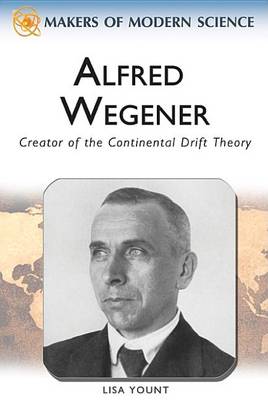Makers of Modern Science
3 total works
As a boy growing up on California's coast, Robert Ballard was fascinated by marine geology and life underwater. While working for the U.S. Navy, he built his expertise in the new technology of submersibles, which served him well in later expeditions. In the 1970s, Ballard took part in several key discoveries in marine science, including direct proof of the theory of plate tectonics and the first sightings of hot water vents and colonies of unique organisms that surround them on the deep-sea floor. But Ballard's most famous expedition found the remains of a famed luxury liner - the RMS Titanic - in 1985. In the years that followed the Titanic discovery, his expeditions sought shipwrecks from both world wars. This absorbing new title shares the life and work of Robert Ballard as he combs the deep for the answers to science's secrets.
When German meteorologist Alfred Wegener first proposed his groundbreaking theory of continental displacement, later called continental drift, in 1912, his geologist peers rejected his theory because the field of geology at the turn of the century was based in 18th- and 19th-century observations about the nature of the earth and the planet's development. Wegener's theory of continental drift proposed that the enormous landmasses slowly moved on the earth's surface over millions of years. His idea explained countless observations made about the earth, from how the continents formed, to what causes earthquakes, to how the earth's surface continues to change. An itinerant explorer, Wegener traveled around the world, and he died while on a polar mission in Greenland. It wasn't until decades after his death that the continental drift theory proved fruitful to other scientists in the 20th century. In ""Alfred Wegener"", learn how this daring adventurer pieced together a theory that later revolutionized the Earth sciences.
Examines the life of Rita Levi-Montalcini, a woman scientist who won the Nobel Prize for her research in neurology.


